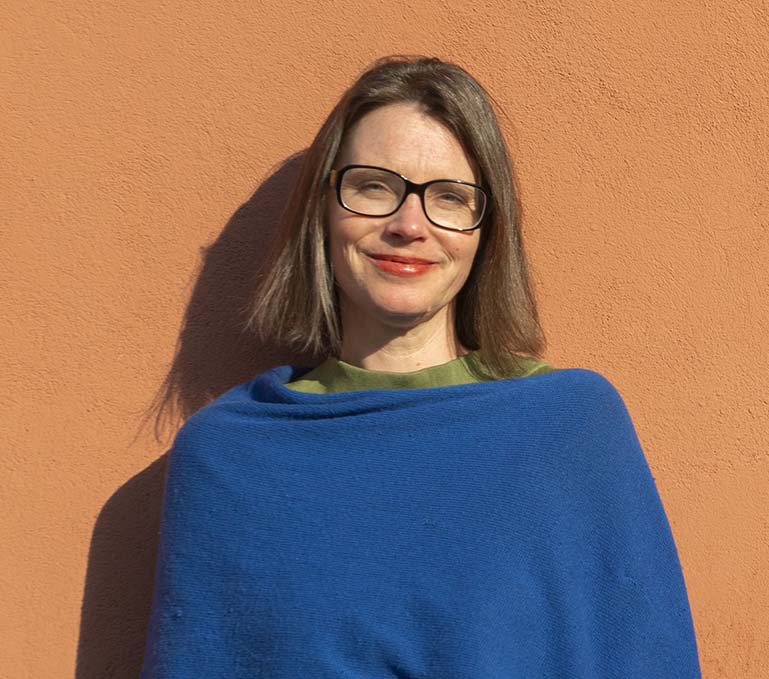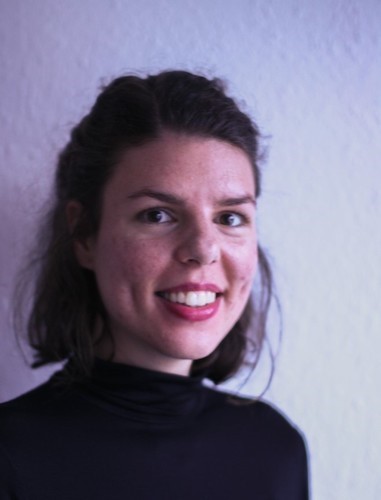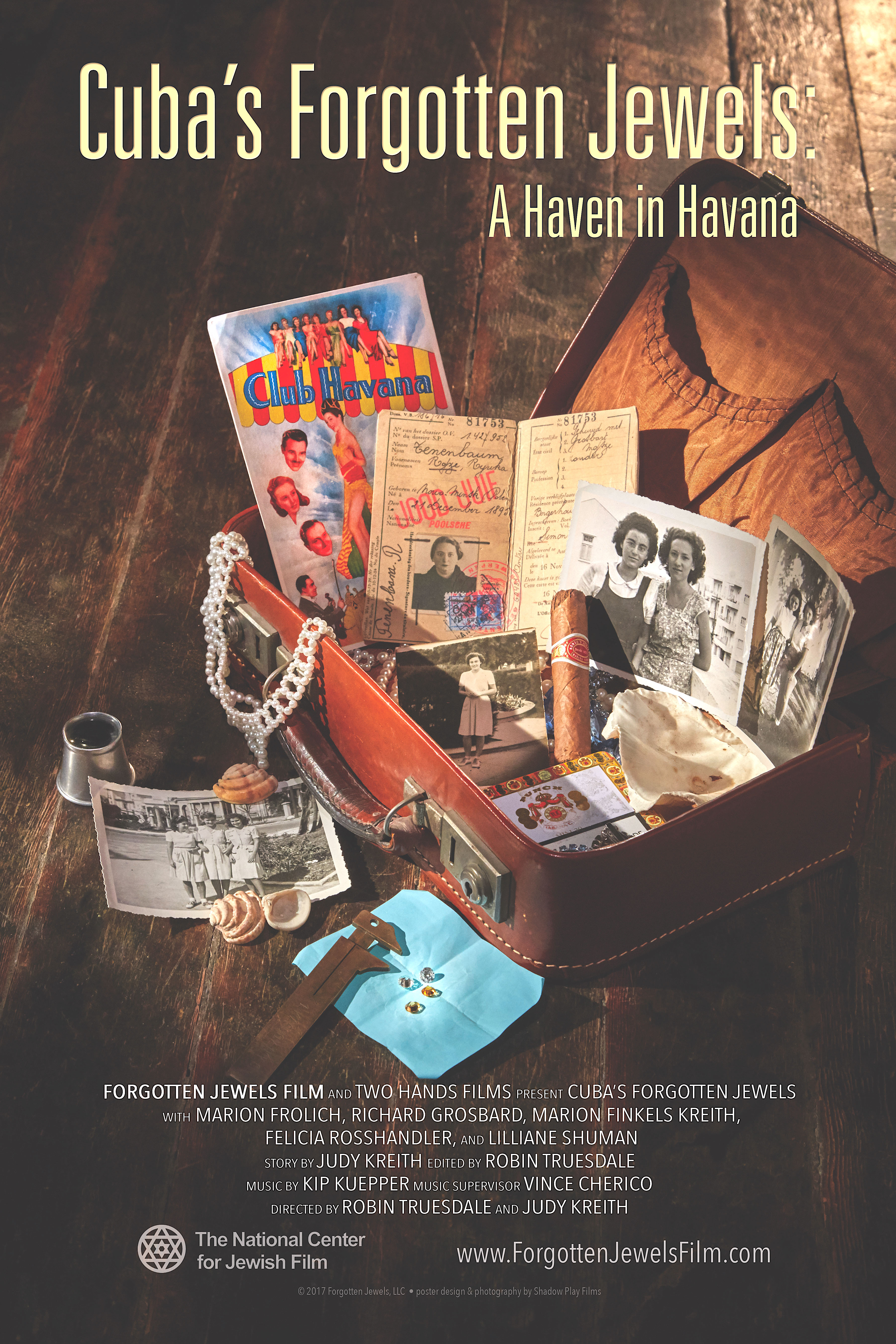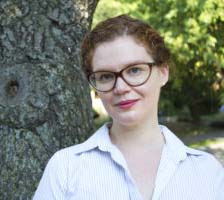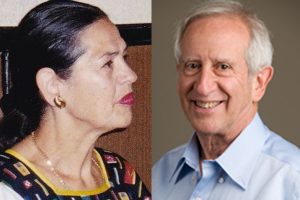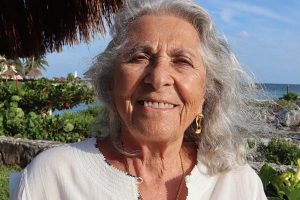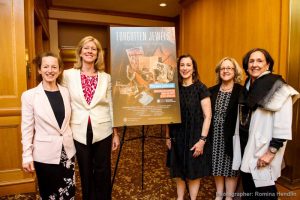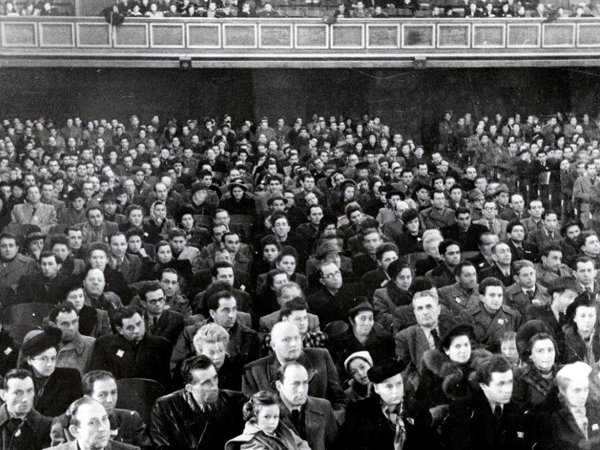
JDC Archives Virtual Programs: Spring 2024
Please join us at our upcoming virtual programs!
The JDC Archives is offering an array of online public programs in the coming months. These events are listed below; please register for each one individually by clicking on its RSVP link. Recordings of past programs are available via our Public Programs Recordings page.
WEBINAR:
“Uncertainty is a torture impossible to bear for long”: Examining Jewish Life in Postwar Romania
Wednesday, April 3, 2024
12:00pm–1:15pm (Eastern)
This lecture takes a microhistorical approach to examine and illuminate the experience of Jewish survivors in Romania during the immediate postwar decades. The Jewish population of postwar Romania was close to 400,000, second only to the Soviet Union in size, yet remarkably little has been written about Jewish life and survivor experience in the decades following the war. Indeed, the general narrative of postwar Romanian Jewry has long been interpreted as fundamentally transitory, an interim period wedged between the massive bookends of destruction and a new life in Israel or elsewhere. And certainly, by the mid-1960s over 60% of the postwar population had emigrated. Yet by interpreting these fifteen to twenty years between the end of the war and the conclusion of a critical mass of emigration as a momentary state, the lives and experiences of those for whom that period was indefinite are neglected. Julie Dawson’s project explores this time from the perspective of Blanka Lebzelter, a young woman originally from Bukovina, using her recently discovered German-language diaries. This lecture introduces the diary author and her life and positions her story within the context of postwar Romania, using JDC archival material to contextualize the macro picture in which Lebzelter’s narrative unfolds.
Julie Dawson is a doctoral candidate at the Institute for Contemporary History of the University of Vienna. Her dissertation examines postwar Jewish life in Romania through the lens of recently found German-language diaries of a Transnistrian survivor. Dawson has worked extensively in and with Romanian archival repositories, directing the Leo Baeck Institute’s archival survey of Transylvania and Bukovina from 2012-2019. She held a Fortunoff Fellowship at the Vienna Wiesenthal Institute from 2020-2021 and currently holds a doctoral grant from the Fondation pour la Mémoire de la Shoah (2022-2024). She is co-editor of Precarious Archives, Precarious Voices: Expanding Jewish Narratives from the Margins and has published in, among others, European Holocaust Studies Vol. 3: Places Spaces and Voids in the Holocaust and Quest. Issues in Contemporary Jewish History. She is a recipient of a 2023 Fred and Ellen Lewis/JDC Archives Fellowship.
RSVPVIRTUAL BOOK TALK:
The Counterfeit Countess: The Jewish Woman Who Rescued Thousands of Poles during the Holocaust
Thursday, May 9, 2024
12:00pm-1:15pm (Eastern)
Commemorate Yom HaShoah with us to hear about the enthralling story of a Polish Jewish mathematics scholar turned false aristocrat who negotiated with top Nazis in Lublin, German-occupied Poland, to help ethnic Polish prisoners at Majdanek concentration camp. The Counterfeit Countess: The Jewish Woman Who Rescued Thousands of Poles during the Holocaust (published by Simon and Schuster in January 2024) is based on Josephine Janina Mehlberg’s memoir and research in 9 countries on 4 continents to uncover a story unknown until now. In their book talk, co-authors Elizabeth (Barry) White and Joanna Sliwa will explain how Mehlberg managed to pull off the hoax and save thousands of lives. Documents discovered in the JDC Archives led the co-authors to a treasure trove of information that corroborated Mehlberg’s identity. After the Holocaust, Janina and her husband Henry pinned their hopes of emigration on the JDC. This talk will shed light on the importance of the JDC Archives today in uncovering stories such as that of the Mehlbergs.
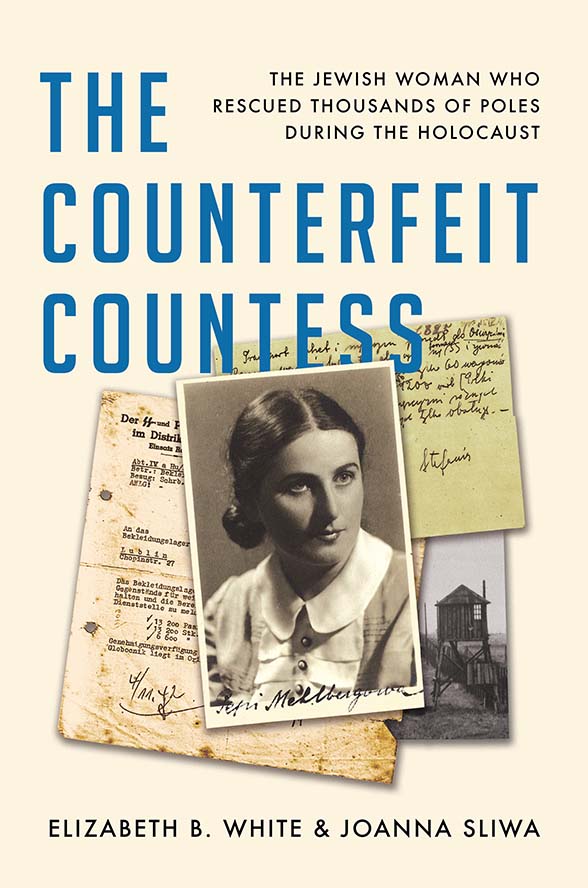
Dr. Elizabeth “Barry” White recently retired from the United States Holocaust Memorial Museum, where she served as historian and Research Director for the USHMM’s Center for the Prevention of Genocide. Prior to working for the USHMM, Barry spent a career at the US Department of Justice working on investigations and prosecutions of Nazi criminals and other human rights violators. She served as deputy director and chief historian of the Office of Special Investigations and as deputy chief and chief historian of the Human Rights and Special Prosecutions Section.
Dr. Joanna Sliwa is a historian at the Conference on Jewish Material Claims Against Germany (Claims Conference) in New York, where she also administers academic programs. She previously worked at the JDC Archives and at the Museum of Jewish Heritage—A Living Memorial to the Holocaust. She has taught Holocaust and Jewish history at Kean University and at Rutgers University. Her first book, Jewish Childhood in Kraków: A Microhistory of the Holocaust, won the 2020 Ernst Fraenkel Prize awarded by the Wiener Holocaust Library.
For more information about the book, visit www.counterfeitcountess.com.
This program is co-sponsored by the Jewish Book Council.
RSVPWEBINAR:
A Sanatorium for the Future: Tuberculosis, Jewish Organizations, and the State in Decolonizing Morocco
Thursday, June 6, 2024
12:00pm-1:15pm (Eastern)
In the late 1940s and 1950s, Jewish public health experts, physicians, and social workers sought to tackle the infectious disease tuberculosis among impoverished Jews in Morocco, which at the time was still part of French North Africa before its independence in 1956. Their efforts were part of a broader medical aid program launched by the Jewish humanitarian organizations JDC and OSE shortly after World War II. The fight against tuberculosis revolved around case finding, treatment, prevention, and rehabilitation, yet there were disagreements over the most feasible approaches. In the early 1950s, a new sanatorium dedicated to Jewish patients was built in Ben Ahmed, southeast of Casablanca. Started as a local initiative during World War II, the Ben Ahmed Sanatorium project developed into a joint undertaking by the JDC, community committees, and the colonial administration. Drawing on records from the JDC Archives, the lecture examines the sanatorium plans in the context of the JDC-OSE health care program for Moroccan Jews. Exploring the evolution of the Ben Ahmed Sanatorium sheds light on how medical resources, state and community responsibilities, and political visions of the future were negotiated in post-Holocaust Jewish humanitarianism in decolonizing North Africa.
Julia Schulte-Werning is a PhD candidate at the University of Vienna. Her research interests are at the intersection of Jewish history, the history of humanitarianism, and the history of health and medicine. In her PhD project, she examines the health care projects of Jewish humanitarian organizations for Moroccan Jews between the Holocaust and decolonization. She is the recipient of the Bernard and Mollie Steuer JDC Archives Fellowship in 2023/2024.
RSVPFILM SCREENING:
Cuba’s Forgotten Jewels: A Haven in Havana
Tuesday, June 25, 2024
12:00pm-1:30pm (Eastern)
Cuba’s Forgotten Jewels: A Haven in Havana recounts the story of Jewish refugees fleeing Nazi-occupied Europe for a safe haven in Cuba, where they ultimately created a diamond-polishing industry in Havana that enabled thousands of Cubans and refugees to survive during World War II.
The film is a collaboration of Judy Kreith and Robin Truesdale. Ms. Kreith has a personal connection to Cuba as her mother, Marion Finkels Kreith was a Jewish refugee in the country and appears in the film. Cuba’s Forgotten Jewels: A Haven in Havana is distributed by the National Center for Jewish Film. View the film’s website here.
This screening will be followed by a Q&A with Director Judy Kreith and special guest Marion Finkels Kreith.
The screening is part of the new webinar series The Latin American and Caribbean Jewish Experience in the Twentieth Century
RSVPWEBINAR:
The Joint and Women’s Vocational Education: A Case Study of the Handicrafts Workshops for Jewish Girls in Lwów
Monday, July 8, 2024
12:00pm-1:15pm (Eastern)
Cecylja Klaftenowa, a university-trained biologist and teacher, founded the Female Vocational School of the Handicrafts Workshops for Jewish Girls in Lwów in 1919, in the wake of the Great War, with a subvention from the Joint. Like many similar Joint-funded schools across Eastern Europe, the school taught practical skills, above all garment-making, in order to alleviate poverty and rehabilitate the Jewish communities of former East Galicia. She eventually founded a school network that would blend secular academic subjects, Jewish studies, and applied arts training at the highest level.
Klaftenowa’s ultimate aim was the alleviation of women’s dependence on fathers and husbands, and their empowerment in the economic and public spheres. At times, she subverted these goals to appeal to the funding prerogatives of the Joint. A close look at the correspondence between the Joint and the school, as well as reports prepared by the Joint about this school and similar ones, uncovers the ways in which relief work intersected with gender and with women’s emancipation and empowerment, in productive and sometimes conflicting ways. This talk also illuminates the persona of Klaftenowa, who was well-known in her day, in Jewish and non-Jewish circles, but whose work and impact have gone largely unnoticed in scholarship.
Sarah Ellen Zarrow is an Associate Professor of History at Western Washington University in Bellingham, Washington, where she also holds the Endowed Professorship in Jewish History. She holds a doctorate from the joint program of the Skirball Department of Hebrew & Judaic Studies and the History Department at New York University. Her ongoing research focuses on Jewish life in Eastern Europe, particularly in Poland. She is especially interested in Jewish museum practices, language politics, and schooling. Her first book, on the creation of Jewish museums in Poland, will appear in Spring 2025 with Cornell University Press. She conducted the research for this talk as a 2023 Fred and Ellen Lewis/JDC Archives Fellow.
RSVP